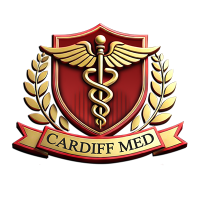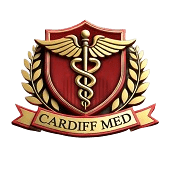Urology MSc
Study while you work through our online MSc Urology course. Affordable distance education.
Overview
The MSc in Sexual and Reproductive Medicine is designed for healthcare professionals seeking advanced knowledge in this specialized field. This fully online program provides a comprehensive understanding of sexual health, reproductive disorders, and medical management strategies.
Through evidence-based learning and case studies, students will explore key topics such as infertility, contraception, hormonal therapies, and sexual dysfunction. The course is tailored for doctors, nurses, and allied healthcare professionals aiming to enhance their expertise and improve patient care.
Entry Requirements
Since our courses are conducted entirely online, they are accessible to both UK and international registered healthcare professionals.
Applicants will typically hold a first degree or equivalent (including international qualifications) in a relevant professional healthcare field, such as a medical or nursing degree.
Registered healthcare professionals without these recognised qualifications will be considered on an individual basis and a wide range of prior experience in the field of Urology may be taken into account. In some cases, applicants may be asked to submit a piece of work for assessment in order to confirm that they are able to work comfortably at postgraduate and MSc level, and demonstrate the requisite clinical and professional knowledge.
- A copy of your updated CV including your address and date of birth.
- A copy of your undergraduate degree certificate.
- The name and email address of someone who is able to provide a reference, this can be a work colleague, employer or former tutor.
- A detailed personal statement explaining why you would like to undertake the course.
- A copy of your proof of English competency (see below).
English Language Requirements Proficiency in the English language is also essential to completing our courses. If English is NOT your first language, we ask for proof of competency during the application process. We are able to accept an IELTS overall score of 6.5 (with a minimum of 6.0 for each band) or an equivalent qualification. Duolingo is also accepted, as long as your score is above 95 per component.
If you do not meet these requirements, please don’t worry. The University of South Wales run a number of English Language Programmes at the Centre for International English to prepare you for your academic studies. You can also contact our admissions team on admissions@cardiffmed.com for more information on the qualifications we accept.
Should you have already successfully completed the 1 year Postgraduate Diploma and wish to convert to the MSc and complete only the second year of the programme this is possible. Please contact our admissions department admissions@cardiffmed.com to find out more.
Please note that those who provide their proof of English proficiency through Duolingo will receive £50 off their final course payment. This discount is applied after payment of your deposit is received
Key Facts
- Awarding University
- Starting Date: 1st September 2025
- Application Deadline : 29th August 2025
- Class Size : 15 - 20
- Duration : 24 months
- Commitment : Part-time
- Format : 100% Online
Course Fees
- Deposit for September 2025: £415 †
- Total Course Fees for UK & International Students for September 2025: £8,880 ††
Payment Options
- Option 1: Upfront Payment in full. Pay-in-full discount is available.
- Option 2: Apply for Interest-free payments each month for the duration of the course.
Payment Plan Breakdown
First Year Payments
| Deposit | 10 Monthly Payments | Final Payment |
| £415 † | £415 | £415 |
Total first year payments: £4,980
Second Year Payments
| 11 Monthly Payments | Final Payment |
| £325 | £325 |
Total second year payments: £3,900
You may also be interested in:
- Spread the cost with Lendwise, who offer financing options for up to 8 years. ††††
† Deposits are non-refundable
†† Prices are subject to review following each intake
†††† Subject to eligibility criteria.
Course Modules and Learning Outcomes
The master in Urology is a two year course, consisting of seven modules (180 credits) with the first 120 credits deriving from the Diploma in Urology. In the second year of the Urology MSc students will complete the professional project module, which consists of a 1,000 word proposal and 11,000 word professional project (dissertation).
Year 1
Apply an advanced understanding of lower urinary tract anatomy, physiology and pathophysiology to the clinical assessment, investigation and management of lower urinary symptoms.
- Anatomy, Physiology and pathophysiology of the Lower Urinary Tract
- Investigation and Diagnosis of the Lower Urinary Symptoms (LUTS)
- Conservative and pharmacological treatment of benign prostatic enlargement (BPE) and lower urinary tract symptoms (LUTS)
- Surgical treatments for benign prostate enlargement (BPE) and lower urinary tract symptoms (LUTS)
- Management of overactive bladder (OAB)
- Management of Nocturnal Polyuria
To develop an in-depth understanding of the presentation, investigation and management of Prostate and Bladder cancer.
- Incidence, presentation and investigation of prostate cancer.
- Diagnosis and staging of prostate cancer.
- Treatment of prostate cancer.
- Presentation and investigation of bladder cancer.
- Diagnosis and staging of bladder cancer.
- Treatment of bladder cancer.
Develop a comprehensive understanding of the presentation, diagnosis and management of patients with urinary tract infections.
- Incidence, risk factors and pathogens
- Investigation and diagnosis
- Management of urinary tract infections
- Recurrent urinary tract infections (UTIs)
- Prostatitis
- Epididymitis and Orchitis
Develop an in-depth understanding of the presentation, investigation and management of renal, penile and testicular cancer.
- Renal cancer – Presentation, investigation and staging.
- Renal cancer – Treatment.
- Testicular cancer – Presentation, investigation and staging.
- Testicular cancer – Treatment.
- Penile cancer – Presentation, investigation and staging.
- Penile cancer – Treatment.
Develop a comprehensive understanding of urinary tract stones and their investigation and management.
- Pathophysiology of stone formation
- Stones and upper tract obstruction
- Presentation and investigations
- Management of acute stones
- Management of recurrent stones
- Stones and infection
Develop an in-depth knowledge and understanding of erectile dysfunction and male factor infertility.
- Epidemiology and causes of erectile dysfunction
- Investigations and Management
- Anatomy and physiology of Peyronie’s Disease
- Investigation and examination of Peyronie’s disease
- Management of Peyronie’s disease
Year 2
To help students recognise, understand, interpret and apply methods used in healthcare research and critically appraise the various methodologies specific to urological research.
- Terminology used in epidemiology and research studies such as prevalence, incidence, sensitivity, specificity, false positives and false negatives.
- Interpreting graphical representation of epidemiological and statistical data such as Kaplan-Meier curves, forest plots and meta-analyses.
- Calculations used in the assessment of research data such as relative risk, absolute risk and number needed to treat. Statistical tests and their applications including t-tests, ANOVA and chi-square.
- Qualitative research methods.
- Fundamentals of evidence-based practice and its application into the clinical setting.
- Principles of health economics, audit and quality improvement/assurance systems.
- Establishing patient registers and the value of disease-specific registers.
Research into educational principles for both healthcare practitioner and patient.
Learning outcomes:
Select and apply different methodological perspectives and tools to answer research questions in urology. Critically analyse and interpret research in urology.
To develop students’ ability to critically appraise specific areas of clinical, research and/or organisational practice and develop skills in independent research, study and writing for publication.
The module will depend on the creation of a piece of work based upon a specific clinically related project relevant to the student’s practice. This project may comprise:
- Literature review and appraisal of the evidence.
- Audit of practice including organisational or clinical.
- Review and implementation of evidence-based practice.
- Qualitative or quantitative research (formal research involving human subjects is not anticipated).
- Case(s)-based and quality of service review with critical appraisal.
- Case report, review of literature and organisational assessment.
Learning outcomes:
Design and undertake a research/development project related to urology.
Critically evaluate practice and suggest improvements or change.
Incorporate knowledge of the research process in developing services appropriately.
Our Speciality Clinic
International Medical College Hospital a bed multispecialty tertiary care referral hospital with Outpatient and Inpatient services. It has world-class treatment



